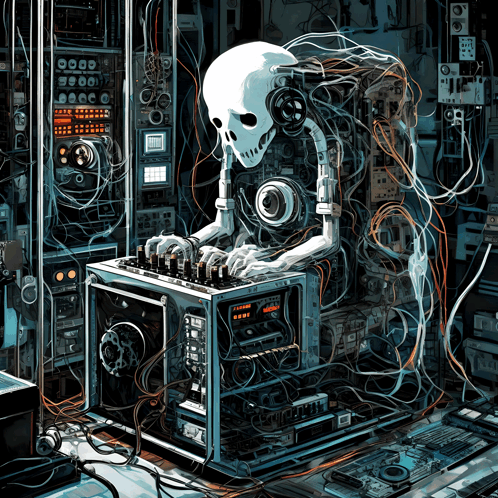Generative AI vs. Machine Learning
In the rapidly evolving landscape of artificial intelligence, two terms that often find themselves in the limelight are Generative AI and Machine Learning. These concepts, while interconnected, have distinct characteristics that make them fascinating components of the AI realm.

Generative AI:
Generative AI is a subset of artificial intelligence that focuses on creating new, unique content. Unlike traditional AI systems that rely on pre-programmed responses, generative AI has the ability to generate novel outputs, such as images, text, or even music, based on patterns it has learned during training. One of the most notable examples of generative AI is OpenAI's GPT-3, a language model that can write coherent and contextually relevant text passages.
Machine Learning:
Machine Learning, on the other hand, is a broader concept that encompasses various techniques allowing systems to learn from data. It involves the development of algorithms that can recognize patterns and make predictions or decisions without explicit programming. This learning process is typically categorized into supervised learning, unsupervised learning, and reinforcement learning, each catering to specific applications.
Contrasting the Two:
While generative AI focuses on generating new content, machine learning is more about making predictions and decisions. Generative AI can be seen as a subset of machine learning, where the learning process is geared towards creative outputs rather than predictive analytics.
Generative AI's strength lies in its ability to create content that is not limited by predefined rules, while machine learning excels in tasks like image recognition, natural language processing, and recommendation systems. In essence, generative AI is about creativity and innovation, while machine learning is about learning patterns from data to make informed decisions.
Harnessing the Power of Both:
Combining generative AI and machine learning can lead to groundbreaking results. For instance, a machine learning model can be trained on vast datasets to recognize patterns, and a generative AI model can then use this knowledge to create entirely new, realistic content. This synergy can be particularly powerful in fields like content creation, design, and even drug discovery.
In conclusion, while generative AI and machine learning have their unique roles, their collaboration can unlock new dimensions of innovation. As technology continues to advance, understanding the nuances of these concepts becomes crucial. What are your thoughts on this fusion of creativity and learning? Let us know in the comments below and suggest what topic you'd like us to explore in our next post!

Posted Using InLeo Alpha
Congratulations @yieldgrower! You received a personal badge!
You can view your badges on your board and compare yourself to others in the Ranking
Check out our last posts: